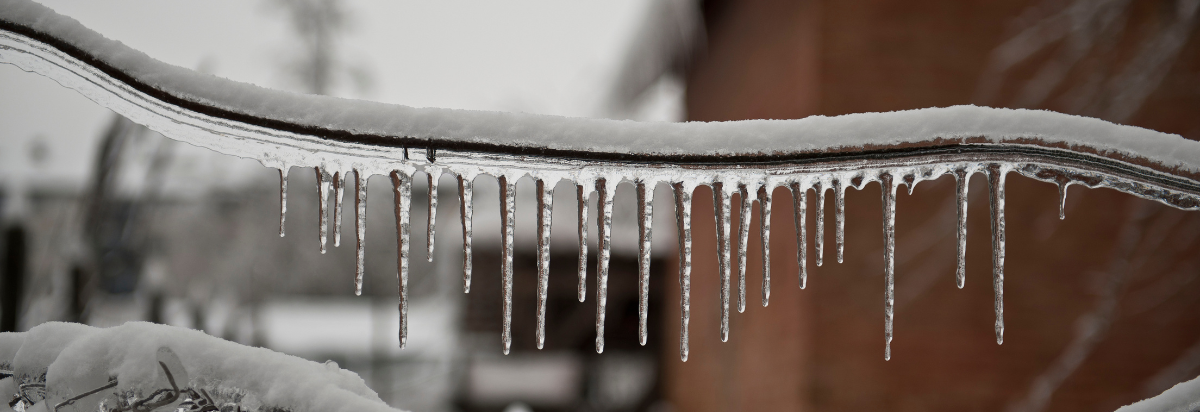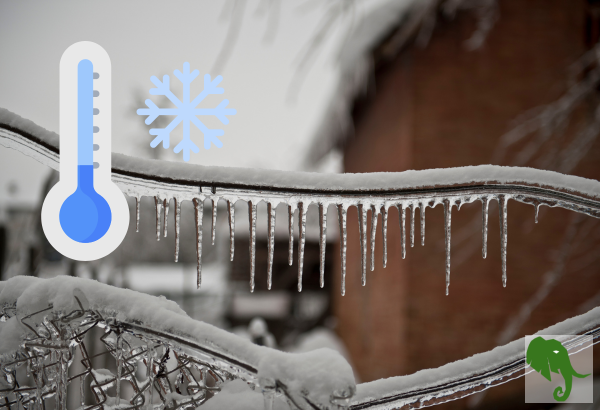
If you didn’t know, Georgia has been experiencing some frigid weather in the last week or two. And no, it is not a first for us. Sure, it’s not up-north kind of weather; but for us, it’s a bit chilly. Mix it with some light snow, sleet, or ice; and our world can come to a halt. We just do not have the infrastructure to handle the extreme winter weather, though I will say it seems to have gotten much better in the last 10 years or so. Either way, it’s good we talk about how to prepare for freezing weather this time.
Snowmageddon, back in 2014, almost shut our world completely down here in Georgia, even around the Atlanta Area. If you were here then, you likely remember it all very well. My 35 minute commute, without traffic, took me three and a half hours that late afternoon when my workplace, at the time, finally decided to send everyone home. It took some folks 12+ hours to get home that evening; and many were stranded, with their vehicles stuck on the side of the road. I was one of the ‘lucky’ ones.
Georgia politicians and meteorologists, at local news outlets, seem to be very careful about how they “predict” and talk about potentially severe winter weather ever since. Suffice it to say, they seem to err on the side of caution or the worst-case scenario end of the spectrum. That’s OK; because personally, I would rather be safe (and prepared) than sorry.
And yes, if you are wondering, I have been up north, including Minnesota, Michigan, even Maine and others, in the dead of winter; so I have some idea of what ‘bad’ winter weather can be like.
With a little snow and ice last week and rumors of more coming this week, it is a good time to share some tips on how you can better prepare for cold winter weather wherever you are.
Below is a list of safety and preparedness tips I want to share for how to become better prepared for freezing weather.
You and Your Family
Food and Water
- Do you have enough food? Don’t hoard; but get things you are nearly out of or things you will need if you lose power. The best thing is to purchase things a little bit over time so you are stocked ahead of time and not having to rush to get things at the last minute when the weather turns.
- Do you have enough water? What if the pipes were to burst? Some of those refrigerator filtration systems do not work without power either. Just ask Denis. Ideally, you need 1 gallon per person per day.
- Make sure your pets have the food and water they need too.
Staying Warm
- Get out the blankets and comforters. No need to wait and have to find them when it’s bedtime.
- Get out the warm clothes. Where are the kids’ mittens and stocking caps? Find them sooner than later. Your kids will appreciate it and so will you!
- If you have a fireplace or fire pit, gather and cut or purchase some firewood. You may need it if the power goes out and/or if you do not have natural gas (or propane) in your house.
- Do not leave your pets outside for extended periods of time. Sure, they have fur but they can still get cold. And their paws are exposed.
And yes, I included pets under the family section because pets are family. If they are not for you, they should be!
Your House
- Leave your faucets dripping overnight to help keep pipes from freezing and possibly bursting.
- Cover any outside spigots. Covering them helps protect them from freezing weather exposure and those pipes or sections of pipes from freezing. For that matter, drain and put away (some place indoors) your garden hoses for the year to prevent them from freezing and you needing to possibly replace them in the Spring.
- Open your cabinet doors to allow more of your house’s warm air to circulate under them, especially when they are on a perimeter/outside facing wall.
Notes: These first few tips are especially important if your house is on a slab, if you have PVC pipes, your pipes are not wrapped with insulation, you are staying in a trailer, a hunting cabin or similar, or any other place that does not have a lot of insulation or the ability to hold heat especially well. If your house is, by comparison, well insulated, has a heated crawl space or basement, then these tips may not be as critical for you to consider.
For those in condos or apartments, you are mostly at the mercy of your building and your property’s management. However, you can still leave your faucet dripping and cabinet doors open over frigid nights to help avoid potential wintry disasters. Your neighbors downstairs might appreciate your pipes not bursting at least.
Additional tips for your house:
- If you’re in the Northeast, be sure and have your house’s heating oil tank topped off for the season. Anywhere else, have your propane source topped off if you have not already.
- Cover any plants you opt to leave outside to help better protect them from the freezing wind and weather. Ideally, you should bring them inside, i.e. the house, garage, or basement, to protect them the best.
Your Vehicles
If you are in the South, where it seems folks generally do not know how to drive in the snow and ice, I say stay off the roads, if you can. When we talk about preparing for cold weather and dealing with roads when they freeze, that would be my top piece of advice. Even if you happen to know how to drive on the snow or ice, it is still the other people that likely do not know how that inevitably get out in it. If you have to get out, here are some tips for your consideration whether you are in the South, North, or out West.
- Be sure to have snacks and water in your vehicles. They will come in handy if you find yourself stranded.
- Have a flashlight in your vehicles. They come in very handy.
- Keep extra clothes and warm weather gear, i.e. coats, gloves, stocking caps, etc. in your vehicles.
- Put a couple blankets in your vehicles.
- Keep a first-aid and/or basic trauma kit in your vehicles. Update contents as needed. If you need to help someone in the elements, those blankets will come in handy here too.
- Do you have a battery jumper or jumper cables in your vehicles? If not, get one or both.
- Be on the lookout for black ice.
- Do not ever slam on your brakes and allow more time/distance for stopping.
- Allow even more space between you and the person in front of you. When you allow more space, you will be less likely to need to slam on your brakes when the person in front of you does something stupid. If it is icy out, you are going to want that space!
- For those up North, put your tire chains in your vehicles so you have them when you need them.
- Top off, test and replace, as necessary, your vehicle’s anti-freeze. If you cannot do it yourself, have your vehicles serviced before the weather turns.
- Make sure you have a windshield scraper in your vehicles. They can come in handy.
- Top off your windshield wiper fluid with the kind that can go cold. Sure, it may still freeze up if it is super cold out; but at least the cold weather stuff will work in a wider range of temps.
- If you are in super cold areas, do not forget to plug in those engine block warmers ahead of time. Usually folks just leave them plugged in overnight so those vehicles can more easily be cranked in the mornings.
- When starting your engine in the morning when it is freezing, let your vehicle run a couple of minutes before just pulling away. This gives time for the oil and everything else to circulate and warm up just a bit before you just go. It’s not as rough on your engine when you let it warm up a bit.
- Wintertime is a good reason to put together and keep a Get Home Bag (GHB) in your vehicles. It contains enough clothes, food, etc. for 24 hours that may just come in handy if you find yourself stranded and needing to … get home. Remember, you need enough supplies for everyone in your family if they are with you. And make everyone carry their own stuff, if they are capable.
Miscellaneous Preparedness and Safety Tips
Here are some tips to consider when we are preparing for cold weather:
- Charge your power cells/chargers and battery jumpers, etc.
- Get the right size batteries for flashlights and weather radios, etc.
- Get your flashlights out and checked. Replace batteries as needed. Or … You can also consider the use of glow sticks if you have time to get some.
- Do you have enough of the right medications on-hand? What about for your pets?
- Update your first-aid and trauma kits as needed. Have them stationed in your house as well as your vehicles, if you have to get out in the weather. Be sure everyone knows where to find them.
- Do you have enough fuels on hand, such as propane, Kerosene or Coleman Camp Fuel, etc.? If you have a camp stove, alternative fuels could come in handy if the power goes out.
- Do you have strap-on crampons? Consider keeping some in your house or vehicles. They can come in super handy with ice on the ground, as they really do make walking easier. Still watch your steps!
- Be sure to only operate propane and kerosene (or similar) space heaters in well ventilated areas. Do not leave them unattended. Of course, electric heaters won’t do you any good if the power is out; but do not go off and leave them unattended either.
- If you live in cold weather areas or just want to be better prepared in order to have a better chance of moving around, get salt and put it down on your sidewalks and driveways. You have to decide if this extra step is worth the hassle.
- Have you gotten your snowblower ready to roll yet for the season? Or… blow? For those in heavy snow areas, be sure to check the fuel and oil levels on your snow blower and do so before you need to use it.
- As a bonus tip, you may want to consider keeping Sta-bil (or similar) (no affiliation) in all your small equipment’s gas tanks to better protect the carburetors from getting gummed up when you are not running them. Your snow blower will likely have a better chance of firing up when you need it too. That and some fresh gas along the way.
Conclusion
We are sure if you follow the tips we have provided here you (and your family) will be better prepared for freezing weather.
The key takeaway for all of our tips is to do whatever needs to be done BEFORE the freezing weather and storms hit.
Can you think of something we might have missed? What do you and your family do to prepare for the freezing weather that we didn’t mention here? Share them in the comments below.
Related Content
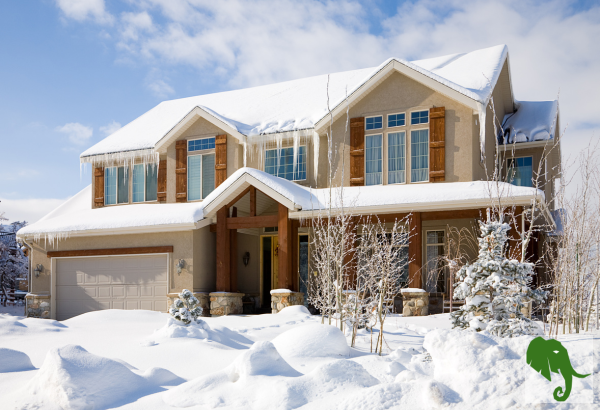
Winter is Coming: Preparing Your Home for the Cold
This past Sunday was the first day of fall. Department stores are putting away their summer items as the summer season has ended. Soon the …

Yes, glow sticks can certainly be used at rave parties, so I’ve heard. However, in times of emergency or when you need a reliable light …
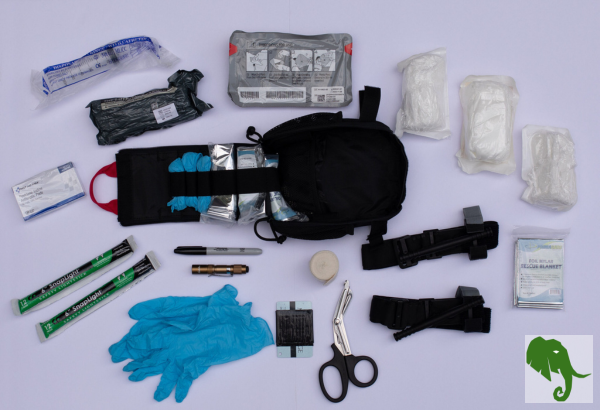
Building a Comprehensive Trauma Kit for Emergencies
In times of crisis or accidents, being equipped with the right tools can make the difference between life and death. Whether you’re out in the …
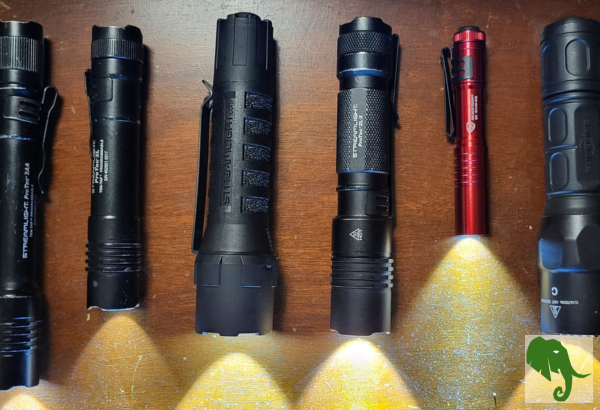
The Importance of Carrying a Flashlight
In any situation, having the ability to see clearly can mean the difference between life and death. This is especially true in low-light environments or …

Read other OwnGuard Solutions blog posts
Read our other posts centered around being safer and better prepared.

